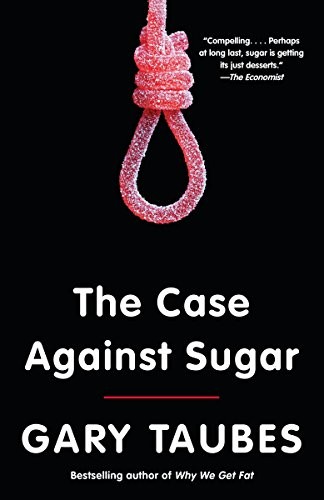Michael Steeves reviewed The Case Against Sugar by Gary Taubes
Review of 'The Case Against Sugar' on 'Goodreads'
4 stars
No closer to definitive answers, but maybe at least starting on the right path.
First, it's good to say what this book isn't.
This book isn't a diet book. There's no lists of what to eat or avoid, the micronutrients you need more of, or that one weird food that will take inches o off your waist line (though in fairness the author does mention one in particular in the epilog).
This book also isn't a definitive statement on sugar's impact on health. As the author notes, while there's a lot of evidence that at least implies correlation, we're a long way away from establishing causation.
So with that having been said, what is this book?
In part, a history of the sugar industry, from its beginnings with the discovery of the beet sugar process through the various industry organizations' involvement in the scientific debates in the 50s, 60s, and 70s around the health impact of sugar. The use of many of the same scientists that went on to work with Big Tobacco to produce studies that attempted to downplay and disavow any potential negative health benefits of sugar was eye opening (to say the least).
This book is also part epidemiological survey into the so-called "Western" diseases like diabetes, heart disease, and hypertension. It traces them from relatively rare things in society through the initial increases to the modern day epidemics. It looks at case studies like the Pima Indians, who remained isolated from Western society well into the 20th century, but when the integration happened saw a corresponding increase in "Western" lifestyle diseases.
It's also part nutrition sciences survey, outlining how medical science evolved over the years as it looked at these diseases and attempted to explain them. It shows how our understanding of all these diseases has involved, and the evidence that is there and continuing to build to consider sugar as at least a part of the big picture.

